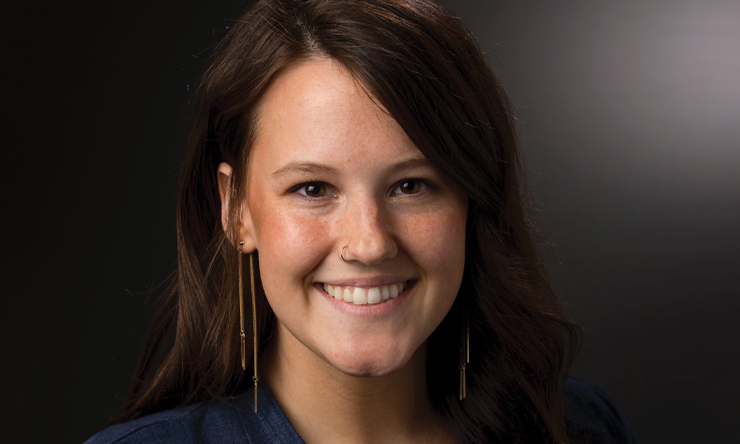This is the second issue of Scene in which we continue to "unpack" our university's vision statement to explore the meaning and significance of each of its elements, so that we may understand this vision more wholly, and thus use it more purposefully to guide us in planning for the future.
What is the Catholic intellectual tradition?
Pose that question to Catholic scholars, and you're bound to spark a discussion that ranges across the history of human thought and touches upon every academic discipline. Still, most agree that the Catholic intellectual tradition is a body of ideas, practices and ways of thinking in which scholarship is informed by faith, and faith is informed by justice, to yield new understanding and direction.
Yet what is perhaps more difficult to define is how this tradition plays out in Catholic higher education today. In that situation, who could be blamed for copping to the old cliché of "I know it when I see it."
That is where we're fortunate at St. Ambrose. The Catholic intellectual tradition upon which the university was founded is more than just evident on campus; it's thriving. It can be witnessed in our classrooms and our labs, even on our stages and our playing fields, in the balance of challenge and support and empowerment and exploration which is enabling our students to fulfill their intellectual, emotional, physical and spiritual potential.
In these pages you'll find it in "Learning to Forgive," which takes us into the classroom for a course on forgiveness, reconciliation and peace-building that was offered this past fall at St. Ambrose. As you'll read, even as students in the class learn the psychological, physiological and cultural reasons why one should forgive, they also come to understand how forgiveness itself is a voluntary gift of mercy from someone who has been wronged-and as such it is, at its essence, an act of faith.
You'll also find the Catholic intellectual tradition alive and well in "Leaving a Legacy for Peace and Justice," which tells of the late Rev. Joseph Kokjohn's gift to establish an endowment for peace and social justice initiatives at St. Ambrose. With his gift, this priest, teacher and longtime Ambrosian sought to enhance the vital dialogue needed on these subjects that will stimulate succeeding generations of Ambrose students to imagine how the world can be more just, and develop in them the fearlessness of heart and mind to work for that world.
These are but two examples of the Catholic intellectual tradition in action on St. Ambrose's campus. Indeed, they show, as no mere definition can, not just what the Catholic intellectual tradition is but, more importantly, why we consider it essential to our institutional vision. For while this great tradition may have been founded in faith, it remains universally relevant because it provides a way of learning that embraces truth of every kind and seeks every method of attaining it-especially as our students set about their lifelong inquiry into what it truly means to be human.
So perhaps the Catholic intellectual tradition is not something that we'll know when we see it. Perhaps, instead, we will know it only when we live it.
News
Share This Story



